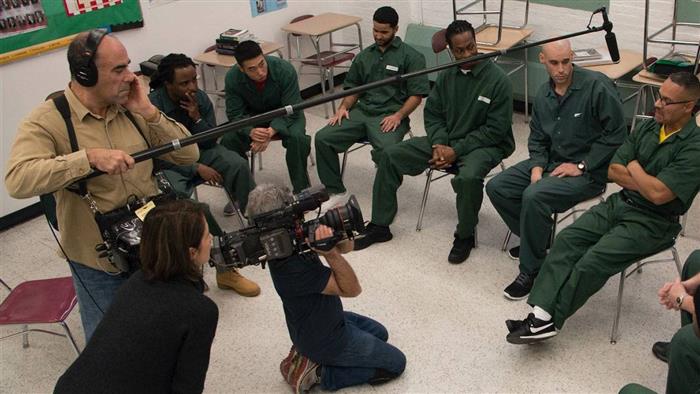
Log In


A new PBS documentary exhibiting prison education, titled "College Behind Bars" is set to air on November 25 and 26. The four-part series documents the journeys of dozens of incarcerated men and women as they pursue college degrees in the Bard Prison Initiative - deemed one of the most rigorous prison education programs in the United States, according to Inside Higher Ed.
A preview of the documentary was shown during a panel discussion held by The Congressional Black Caucus Annual Legislative Conference last week, wherein attendees discussed issues surrounding criminal justice reform efforts, prison privatization and forgiveness.
After Bill Clinton signed a crime bill excluding prisoners from participating in the federal Pell Grant program in 1994, funding for prison college courses dwindled. In response, Bard College established the Bard Prison Initiative in 1999, which now enrolls over 300 students at six medium and maximum security prisons in New York State. Since its inception, BPI has issued roughly 50,000 credits and 450 degrees. Studies have indicated that "restoring Pell Grant access to people in prison and rebuilding and expanding postsecondary education programs in prisons would yield far-reaching economic benefits," such as allowing them to re-enter the labor market, finding employment, helping them avoid a return to prison, improving social and economic outcomes for their communities and allowing for more savings to states. With the availability of college prison programs, it is estimated that the cost of incarceration would decrease by roughly $45.3 million across states due to the decline in recidivism rates.
Roughly 58 percent of inmates do not complete an education program while incarcerated meanwhile 64 percent are academically eligible to enroll in a college prison program. The Second Change Pell Program assists 12,000 inmates annually in achieving higher levels of education. If the ban on federal financial aid for incarcerated individuals were lifted, it is estimated that 463,000 more prisoners would qualify for a Pell Grant. Currently, Federal Pell Grants are not available to individuals who are incarcerated in federal or state penal institution or are subject to an involuntary civil commitment upon completion of a period of incarceration for a forcible or nonforcible sexual offense.